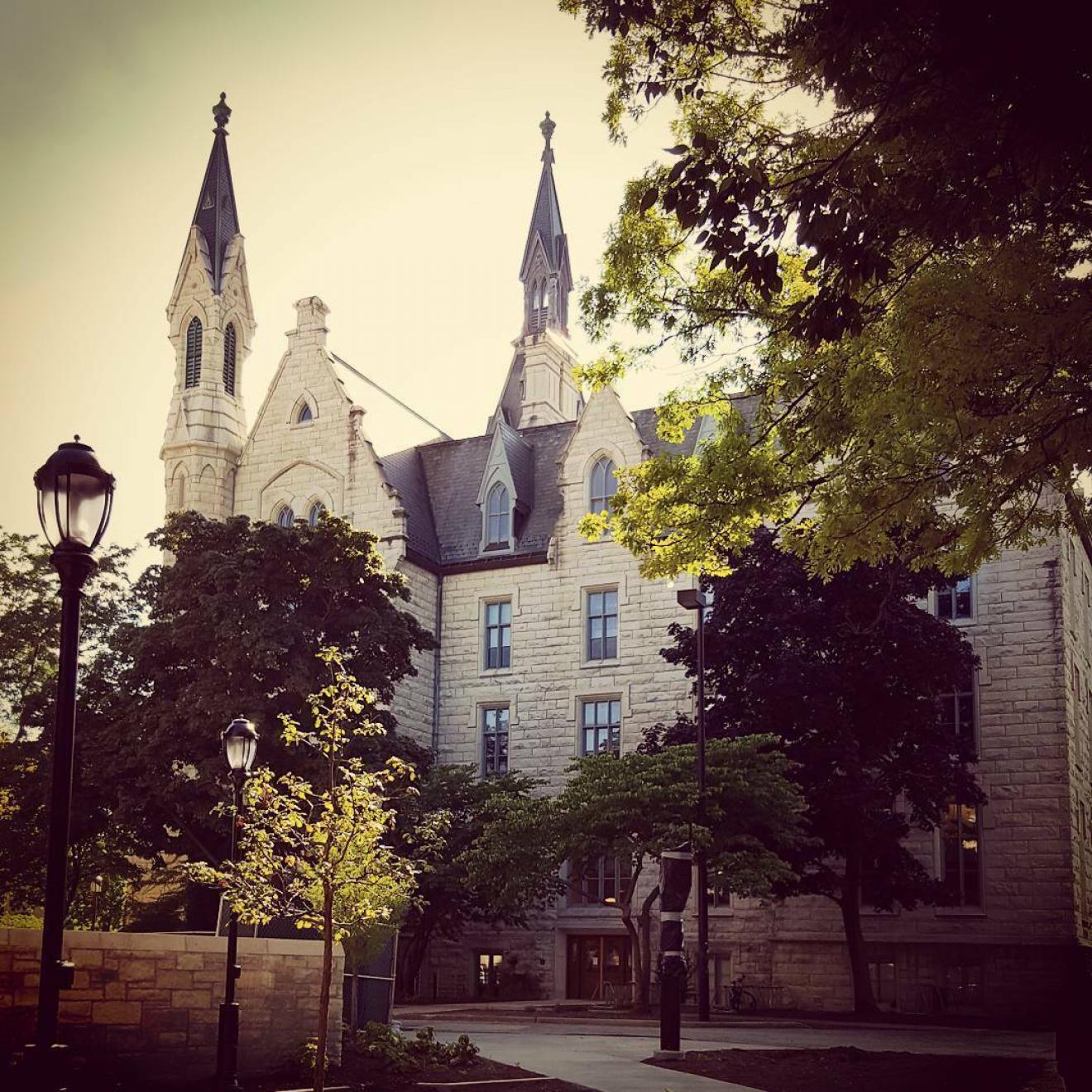Best Clinical Psychology colleges in the U.S. 2025
Clinical psychology is a subfield of psychology that deals mainly with mental disorders and integrates theory and science to better understand disabilities and to promote personal development. Clinical psychologists work with the intellectual, emotional, social, and behavioral phases of human performance. The degree program includes instruction in clinical assessment and diagnosis, personality appraisal, cognitive and behavioral therapy, and clinical treatment of behavioral abnormalities, psychological disorders, and severe psychiatric disorders such as schizophrenia and depression.
Prospective clinical psychology students need to make sure the program at their school is accredited. Graduates of the program may find work in private practice, schools, and health care facilities. Clinical psychologists diagnose and evaluate mental illnesses and psychological disorders through observation, personalized and group therapy, patient interviews, and psychological tests, but clinical psychologists are not medical doctors. After thorough analyses, programs of treatment are developed and administered. Patients are then re-evaluated to ensure the applied treatment is working accurately, which is documented with detailed records.
Extensive research is associated with this program because of all the treatments and symptoms involved. Understanding the ethical standards and applicable regulations of clinical psychology are keys to a successful career. Clinical psychologists also need to have excellent communication skills to effectively aid their clients. Specialty areas within clinical psychology include child and adult mental health, learning disabilities, emotional disturbances, substance abuse, and health psychology.
Click Here to See the Best Colleges in the USBest Clinical Psychology colleges in the U.S. for 2025

Northwestern University’s Clinical Psychology program prepares students interested in working with children and adults with mental illness and disabilities. This program includes courses that teach students how to assess, communicate with, and structure sessions in a clinical setting. Classes are available both in-person and remotely, though some required courses may include in-person instruction at grade schools in the Chicago metro. Students at Northwestern are also encouraged to observe patients and practicing psychologists during their junior or senior year to further their professional experience before graduation.
The clinical psychology program at Tufts University provides a foundation for undergraduate students that want to become involved in helping people of all ages overcome mental illness and psychological disorders in a clinical setting. Students interested in exploring this major learn how to observe patients with and structure therapy sessions for those with learning or developmental disabilities. It is common for undergraduates to complete an on or off-campus internship at a hospital or private practice locally in the Boston metro, which helps many students develop professional relationships and references for when they graduate.

For students interested in pursuing a clinical psychology degree in New York City, Columbia University offers a competitive track with ample professional observation opportunities at local hospitals and psychiatric clinics in the New York metro area. Undergraduates are advised to apply to internships during their degree program and in summer breaks to gain hands-on experience that will be invaluable when they apply for professional roles post-graduation.
The University of Virginia offers undergraduates the opportunity to enroll in their clinical psychology program, which is the first step for students interested in working with patients with mental health conditions like depression or schizophrenia. It is common for students to take classes in psychology and mental development as an introduction to the broader field, along with hands-on labs to familiarize themselves with patient interaction and communication. UVA offers a four-year path with opportunities to apply to internships at schools locally in the Charlottesville and Washington D.C. metro areas to gain real-world experience.
The clinical psychology program at the University of Rochester offers classes geared towards students preparing to enter into the field as a psychologist, therapist, or administrative mental health officer. In the classroom, students have opportunities to study mental illness, complete observational labs with patients in the university system, and attend off-campus internships at private practices in the Rochester metro.
Binghamton University has a clinical psychology program that emphasizes courses in psychology and mental health disorders and is structured to prepare students for clinical roles upon completion of their Bachelor’s. This program is to be completed in four years and provides students with a range of local internship opportunities in the Binghamton metro, along with seminars to provide professional observation and guidance before entering the workforce.
The University of Denver offers a Bachelor’s Degree in Clinical Psychology for students in Colorado that have an interest in helping children and adults with mental illness in a hospital or clinical setting. Courses that contribute to this program include early childhood development, psychological analysis, and ethics. Graduates should also note that the University of Denver has a large network locally to assist recent graduates in post-graduation job placement.
Boston University’s clinical psychology program is a top school for students interested in pursuing a career working with children and adults with mental disabilities. Their program offers classes on subjects like autism, severe mental health disabilities, and applied behavior analysis. Students should expect a rigorous workload, extensive practicum observation time, and professional internships to further their experience.
For Long Island residents with aspirations of pursuing a degree in clinical psychology, Stony Brook University offers a four-year program designed to prepare students for jobs working directly with people with developmental difficulties and mental disabilities after graduation. Students are advised to take classes in psychology and early childhood development, as well as in-person internships at public schools on Long Island to gain experience working in a clinical setting with patients and practicing professionals.
University of Houston offers 1 Clinical Psychology degree programs. It's a very large, public, four-year university in a large city. In 2022, 7 Clinical Psychology students graduated with students earning 7 Doctoral degrees.
Find local colleges with Clinical Psychology majors in the U.S.
What is Clinical Psychology?
The American Psychological Association (APA) broadly defines clinical psychology as a specialty that “provides continuing and comprehensive mental and behavioral health care for individuals and families.”1 Patients come from all walks of life, suffering one or more problems from a spectrum of recognized issues such as:
- Intellectual
- Emotional
- Psychological
- Social
- Behavioral maladjustment
- Disability and discomfort
- Minor adjustment issues
- Severe psychopathology
Clinical psychologists must master several diagnostic and treatment techniques to care for their clients’ unique needs. Other typical duties include:
- Consultation services to local community organizations
- Providing valuable education and training services to groups
- Conducting studies and research to keep pushing the field forward
- Using therapy skills to conduct psychotherapy
- Conducting intellectual and psychological testing
Clinical psychologists play an invaluable role in the health and wellness of hundreds of thousands of patients every year. These critical health professionals diagnose complex mental and behavioral disorders to tailor individual treatment plans. Clinical psychologists often work with families and groups, with many choosing to focus their efforts on helping at-risk populations.
Though clinical psychologists generally don’t prescribe medications, they do utilize a range of assessment and treatment strategies based on both established and cutting-edge scientific research. Several prefer to be self-employed, though you can find clinical psychologists working in schools, hospitals, and many other types of organizations. To qualify for work in this career field, you’ll need a firm commitment because the educational requirements can be intense!
Bachelor's Degree in Clinical Psychology
The first step on your path to becoming a clinical psychologist is to obtain your Bachelor’s Degree in Psychology. You can choose to attend in-person or online, but psychology happens to be a perfect major for distance learning since there is less “hands-on” work required than other subjects in the early stages. Let’s look at the general requirements for completing an online clinical psychology degree!
Admission Requirements for a Bachelor’s Degree in Clinical Psychology
As with any undergraduate program, you’ll have to apply via a sometimes arduous process. Competition to get into the best schools is fierce, so be sure to read all your potential school’s website requirements closely.
Common general requirements include holding a minimum high school grade point average (GPA) and submitting a written letter to showcase suitable writing abilities. Letters of reference might also be requested, as well as SAT/ACT scores.
Highly competitive schools might look at other factors, such as work, volunteer, or extracurricular activities experience. For those who’ve already attended college elsewhere, you’ll need to submit transcripts to receive possible transfer credits. There’s almost always an application fee, too, which can vary considerably.
Many universities weigh additional factors related to one’s background to ensure equal opportunities and access. Be sure to carefully review any comments listed on the school or program’s website related to such considerations and note them in your application, if applicable.
Graduation requirements for a Bachelor’s Degree in Clinical Psychology
On the other end of the degree process are graduation requirements. The most critical, of course, is to complete the total amount of applicable credits to qualify for graduation. This is usually 120 semester hours for a bachelor’s degree. In addition, you’ll need to fulfill any specific major (and minor, if needed) requirements, including finishing sufficient upper-division credits (usually around 40) and passing all mandatory classes.
Every program has its own minimum GPA standard for graduation. While the minimum national GPA to graduate might be 2.0, you must look at your program’s listed minimum. To graduate with a clinical psychology degree, expect a higher threshold than other majors might demand. You’ll also need to stay out of trouble and avoid any academic ethics issues if you want to work in this field one day!
Coursework for a Bachelor’s Degree in Clinical Psychology
Each program has its own unique curriculum, but much of that will be based on common national standards. There is often an emphasis on training students so they’ll gain skills desired by employers,2 such as:
- Decisiveness
- Critical and analytical thinking
- Complex problem-solving
- The ability to communicate persuasively and professionally
- Strong teamwork orientation
- A solid ethical foundation is also a must!
Skills Learned in a Clinical Psychology Bachelor’s Degree Program
An online Bachelor’s Degree in Psychology offers all the fundamentals needed for your graduate work. As noted by the APA, graduates will develop skills such as how to apply the knowledge they’ve learned and how to apply principles of scientific reasoning.3 Other vital skills include how to think critically when assessing, diagnosing, and treating patients.
Graduates should be fully aware of their moral and ethical responsibilities to the communities they intend to serve. They must also be well-prepared to effectively communicate during in-person sessions and through their professional writing.
Career opportunities with a Bachelor’s Degree in Clinical Psychology
Graduates with a Bachelor’s Degree in Psychology don’t necessarily have to wait to start their careers. They can begin working in other roles as they continue their education to qualify as a clinical psychologist. A few positions for grads include:
- Human resources
- Psychiatric technician
- School counselor
- Substance abuse counselor
Courses in Undergraduate Clinical Psychology Programs
Every program will have its own curriculum, but standard courses include:
- Adult development
- Causal determinants of human personality
- Cognitive neuroscience
- Experimental and abnormal psychology
- General psychology
- Learning and motivation
- Psychological research and ethics
- Psychology seminars
How Long Does it Take to Get a Clinical Psychology Bachelor’s Degree?
Most bachelor’s degree programs require 120 credit hours. However, many factors can impact the exact length of time it takes you to finish.
The most significant factor, naturally, is whether you go full-time or part-time. It takes an average of four years to complete a Bachelor’s Degree in Psychology for students attending full-time. If attending part-time, it will depend on your course load. “Part-time” might mean taking a half course load or, for some, only one class per term. Part-time attendance, therefore, could stretch your timeline out to as long as eight to ten years.
One’s previous education is also an essential factor. If you have applicable Advanced Placement high school credits or credits from other colleges, you might be able to transfer those and cut down your time significantly.4
Online learning has revolutionized the world of education and decreased barriers to access. Taking online courses also cuts out the need for commuting and allows for the flexibility to attend class when it is convenient. This helps many students take more courses than they would otherwise be able to, thus speeding up that graduation date!
Several accredited schools offer accelerated programs that combine bachelor’s and master’s requirements. That’s an irresistible option to consider if you want to knock out your education even faster.
Master's Degree in Clinical Psychology
After you’ve finished your bachelor’s degree, it’s time to start your graduate education! To become a psychotherapist, you’ll need at least a master’s degree, so let’s dive into the program requirements.
Courses in Graduate Clinical Psychology Programs
Just as with a Bachelor’s Degree in Psychology, every school offering a master’s will have its own curriculum. However, now we’re getting into more specialized territory. Most programs will align offerings with standards set by the American Psychological Association.
Here’s a sampling of courses offered by Grand Canyon University as an example of what to expect:5
- Forensic Psychology
- General Psychology
- GeroPsychology
- Health Psychology
- Human Factors Psychology
- Industrial and Organizational Psychology
- Life Coaching
How Long Does it Take to Get a Clinical Psychology Master’s Degree?
While the average time to complete a Master’s Degree in Clinical Psychology is roughly two years, some programs boast shorter, more streamlined programs to help you finish in a year.
Many other variables impact how long your degree might take, such as whether or not you have transfer credits to apply or if you might’ve enrolled in an accelerated dual degree program. Such programs allow students to work on both their bachelor’s and master’s at the same time, cutting down timelines by months.
Apart from accelerated programs, how soon you finish simply depends on whether you go full-time or not. Part-time attendance can stretch a typical two-year degree out to a four-year degree or longer! It depends on how many classes you’re able to take each term.
Working students or those with families or other obligations might feel inhibited by the inflexibility of traditional, in-person attendance. That’s why many students opt to register for online classes so they can attend at their convenience and complete their degree faster. Online programs aren’t easier in terms of subject matter or quantity of assignments. They’re simply easier to attend since everything can be done from your computer.
Doctoral Degree in Clinical Psychology
Though many clinical psychologists start working after they’ve finished their master’s, there are times when a PhD in Psychology, Doctor of Psychology (PsyD), or other additional education is required.
The PhD option focuses more on research and requires a dissertation. A PsyD is considered a practical “clinical degree” and typically involves a year-long internship. Both options require a year-long internship, and graduates may need to complete a post-doc to acquire the hours needed for licensure.
When working under the supervision of a doctoral psychologist, other master’s degree graduates can also work as research assistants, psychological technicians, or psychotherapists.
Internships in Clinical Psychology
Psychology majors planning to work as clinical psychologists can expect to do an in-person internship at some point along their educational journey. These vital roles help build communication skills and develop practical knowledge in a range of treatment settings.
Depending on their interests and plans, students might intern in hospitals, college counseling centers, community clinics, schools, or correctional facilities.
According to the Bureau of Labor Statistics, PsyD students working in “clinical, counseling, school, or health service settings” should expect to complete a doctoral internship.6 Since those categories make up the majority of positions, you can expect an internship!
However, every state has its own requirements regarding the length of internships. Check your university’s program website for complete details about internship lengths and suitable locations.
Certification and Licensure in Clinical Psychology
Clinical Psychology Certification and Licensure
Every state is different, but most require that a person working as a psychologist holds a license or certification. Anyone practicing independently will need a license, regardless of what state you’re in. To obtain a license, you must finish do the following:
- Complete your degree(s)
- Complete any internship or post-doc supervised hours
- pass the Examination for Professional Practice in Psychology (EPPP)7
- Created by the Association of State and Provincial Psychology Boards (ASPPB), the computer-based EPPP contains 225 multiple-choice questions covering eight content areas:8
- Assessment and diagnosis
- Biological bases of behavior
- Cognitive-affective bases of behavior
- Ethical, legal, and professional issues
- Growth and lifespan development
- Research methods and statistics
- Social and multicultural bases of behavior
- Treatment, intervention, and prevention
- Check with your local board of psychology to see if additional coursework is needed. For instance, if you live in California, you need to complete a suicide assessment class.
The EPPP takes a maximum of 4 hours and 15 minutes to finish. Test takers must score a minimum of 70% to pass. The EPPP exam currently costs $450, though fees can vary by region.
The American Board of Clinical Psychology (ABCP) “expects that most clinical psychologists should qualify for board certification.”9 This requirement ensures that clinical psychologists have finished all needed education and training and sufficient work experience to perform the duties and meet the responsibilities of their crucial positions.
Part of the ABCP board certification application includes an exam “designed to assess the competencies required to provide quality services.”
Some states require psychologists to maintain currency on their skills by taking professional development courses. You can check the Association of State and Provincial Psychology Boards’ PSY|Book for state-specific details and information about transferring your EPPP score.
In addition to licensure, clinical psychologists can finish optional specialty certifications to gain proficiency and qualify for specific roles or promotions. The American Board of Clinical Neuropsychology offers certification in Clinical Neuropsychology, and the American Board of Professional Psychology (ABPP) offers specialty board certifications in the following areas:9
- Behavioral & cognitive
- Clinical child & adolescent
- Clinical health
- Clinical psychology
- Clinical neuropsychology
- Counseling
- Couple & family
- Forensic
- Geropsychology
- Group
- Organizational & business
- Police & public safety
- Psychoanalysis
- Rehabilitation
- School
Earning an Online Clinical Psychology Degree
It’s important to weigh the pros and cons of completing an online degree versus traditional attendance.
- Online programs lack some of the socialization component, which often makes the college experience more fun.
- Live campus interaction can be either distracting or helpful to designating study time, depending on the student.
- Online programs can sometimes be more affordable without the additional on-campus fees.
- Online programs may not connect students with internships and practicums, a required part of becoming a therapist.
As mentioned, there are several years’ worth of academic requirements to complete to become a full-fledged clinical psychologist. Though some elements, such as internships, will require physical presence, most coursework can theoretically be completed online if you enroll in the right programs.
Some students might opt to do a hybrid path, attending both online and in-person classes when convenient or necessary. Sometimes students earning their bachelor’s degree have enough flexibility in their daily schedules to allow for on-campus attendance. However, not everyone has that luxury. Situations vary and can change over the years, making distance learning a preferred option for many as they get older and start jobs and/or families.
There are no shortages of accredited programs out there featuring at least some online courses. It’s up to you to decide which path you want to take during your bachelor’s, master’s, or doctorate, keeping in mind in-person attendance and internship requirements. Make sure to speak with your program’s advisors before applying if you have any questions about physical attendance!
Clinical Psychology Career and Salary Overview
There are a wide range of potential clinical psychology career paths. The Bureau of Labor Statistics provides data on a few, including median salaries and projected job growth rates.
| Career | Salary | Projected Job Growth (2020-2030) | About the Position |
| Clinical psychologist | $79,820 | 10% | Diagnoses and treats patients of all ages and walks of life for a broad spectrum of mental health issues. |
| Industrial-organizational psychologist | $96,270 | 2% | Boosts employee morale and workplace productivity using relevant strategies applied in a business environment. |
| Counseling psychologist | $79,820 | 10% | Helps patients understand, cope with, and overcome struggles they might face at home, at work, or in other aspects of their daily lives. |
| Forensic psychologist | $82,180 | 8% | Applies their knowledge and training to aid workers in the legal system with complex cases that contain psychological components. |
| Rehabilitation counselors | $37,530 | 10% | Empathetic specialists working with persons facing disabilities caused by illness or accident. |
| Other psychologists | $105,780 | 8% | This broad category serves as a “catch-all” for other types of psychologists not already mentioned. |
| School psychologist | $79,820 | 8% | Focusing on applying knowledge and skills to assist students struggling with various learning or behavioral challenges so that they can improve performance. |
Aspiring clinical psychologists should expect years of academic training and preparation, including a bachelor’s, master’s, and usually a doctorate. In addition, there are other requirements, such as a supervised internship, completion of specialty board certifications, and testing requirements to obtain a license, when applicable.
Clinical Psychology Career Resources
-
American Board of Professional Psychology – Founded in 1947, the ABPP’s mission is to “increase consumer protection through the examination and certification of psychologists who demonstrate competence in approved specialty areas in professional psychology.”
-
American Board of Clinical Psychology – The ABCP is a board under the umbrella of the ABPP focused on various critical specialty certifications.
-
American Board of Clinical Neuropsychology – ABCN is a specialty board also under the ABPP and focused on the certification of Clinical Neuropsychologists.
-
Association of State and Provincial Psychology Boards – Considered the “voice” of the psychology regulation industry, ASPPB is in charge of the Examination for Professional Practice in Psychology. All practicing psychologists must meet ASPPB standards to work.
-
American Psychological Association – APA is the country’s premier scientific and professional psychological organization with 122,000+ members striving to advance the field for the benefit of society.
Clinical Psychology FAQ
List of all Clinical Psychology colleges in the U.S.
| School | Average Tuition | Student Teacher Ratio | Enrolled Students | |
|---|---|---|---|---|

|
Northwestern University Evanston, IL | 15 : 1 | 23,161 | |

|
Tufts University Medford, MA | 16 : 1 | 13,431 | |

|
Columbia University in the City of New York New York, NY | 21 : 1 | 34,782 | |

|
University of Virginia-Main Campus Charlottesville, VA | 17 : 1 | 26,082 | |

|
University of Rochester Rochester, NY | 15 : 1 | 12,197 | |
Article Sources
- American Psychology Association
- https://www.petersons.com/blog/will-my-ap-courses-really-translate-into-college-credit/#:~:text=If%20a%20college%20accepts%20your,college%20credits%20toward%20your%20degree.&text=So%2C%20placement%20is%20allowing%20you,college%20credits%20for%20the%20class.
- https://explore.gcu.edu/psychology/general/?gcu=GS-BRAND|Google|CPC|A-S%20Psychology|%2Bpsychology%20%2Bdegrees&adID=335237208950&device=c&network=g&invocaid=GS-BRAND-MN&pg=A-S&gclid=Cj0KCQjwpdqDBhCSARIsAEUJ0hOuImWIJ7caKfo9LEMViAbLR6kxMOtHJSpxQfnhN7wHOMcQ3r48nT8aAqs2EALw_wcB
- https://www.bls.gov/ooh/life-physical-and-social-science/psychologists.htm#tab-4
- https://www.asppb.net/










